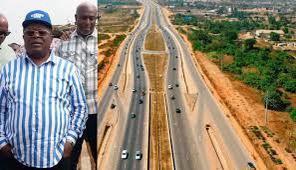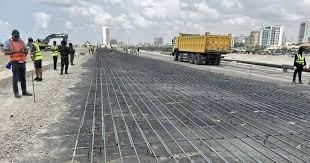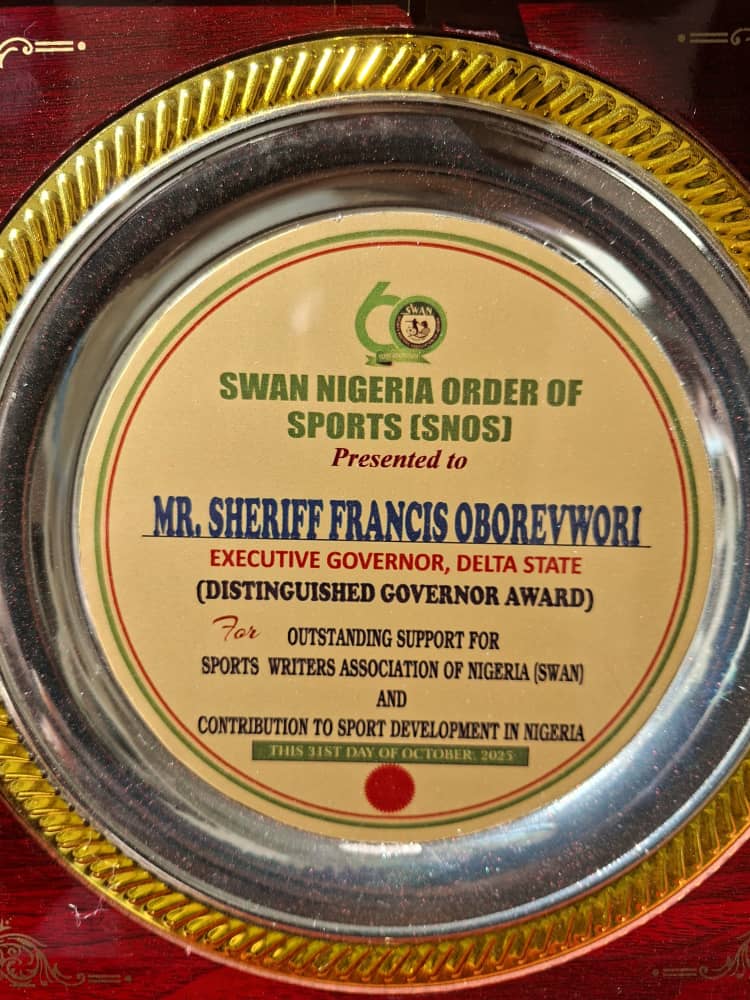
The Federal Government, through the Minister of Works, Dave Umahi, has unequivocally assured the public that the ongoing construction of the Lagos-Calabar Coastal Highway is engineered with a robust design capable of withstanding significant flood events for an extended period of approximately 50 years
This commitment underscores the government’s dedication to building resilient infrastructure that can effectively adapt to the challenges posed by climate change and ensure the long-term viability and functionality of this crucial transportation artery.

Speaking at a stakeholder engagement focused on Section 2 of the ambitious highway project held in Lagos, Minister Umahi articulated the meticulous planning and engineering considerations incorporated into the project’s design to mitigate the risks associated with flooding. He emphasized that the pavement level of the highway is being strategically elevated to effectively counter the potential impacts of rising water levels and other adverse effects stemming from climate change, thereby safeguarding the road’s structural integrity and ensuring uninterrupted connectivity.
Elaborating on the specific measures being implemented to enhance the highway’s resilience, Minister Umahi highlighted the ongoing construction of a substantial retaining board. This structural element is designed to provide robust support and stability to the road infrastructure, effectively preventing erosion and ensuring the long-term durability of the pavement. Furthermore, the project incorporates a forward-thinking approach to utility management through the inclusion of a dedicated cable duct.
This provision will eliminate the need for future road excavations by telecommunications companies and other network providers, preserving the road’s surface and minimizing disruptions to traffic flow.
Minister Umahi further emphasized the government’s commitment to ensuring the safety and security of road users through the integration of advanced technological solutions. He announced the planned installation of closed-circuit television (CCTV) cameras along the entire stretch of the highway. This comprehensive surveillance system will enable swift detection and response to any incidents or emergencies, with an anticipated response time of less than five minutes, thereby enhancing overall road safety and security.
In addition to its primary function as a transportation corridor, the Lagos-Calabar Coastal Highway is also envisioned to incorporate features that promote environmental sustainability. Minister Umahi highlighted the decision to utilize concrete pavement in the construction, which is expected to contribute to earning carbon credits due to its lower emissions compared to traditional asphalt. Furthermore, the project plans include the extensive planting of trees along the highway, enhancing its aesthetic appeal while also contributing to environmental conservation efforts
Addressing the specific logistical requirements of key stakeholders, Minister Umahi acknowledged the presence of the Dangote Refinery along the project corridor. To facilitate the seamless movement of large trucks entering and exiting the refinery, the design incorporates a flyover with a substantial span of 60 meters, followed by a 41.6-meter counterbalance span.
This thoughtful engineering solution ensures unhindered access to the refinery while maintaining the smooth flow of traffic on the highway. Minister Umahi expressed his confidence that this section of the highway, including the flyover and the adjacent seven-axial road, will become a significant landmark and a point of interest for visitors.
Recognizing the importance of providing essential amenities for travelers, Minister Umahi announced the allocation of land along the highway corridor, granted by the state government, for the development of what he termed “relief centers.” These strategically located facilities will offer a range of services, including snack outlets, petrol stations, supermarkets, and medical facilities, providing convenient rest stops and addressing the needs of commuters and other road users.
Minister Umahi expressed his sincere gratitude to all stakeholders for their active participation and unwavering support for the Lagos-Calabar Coastal Highway project. He specifically acknowledged the presence of individuals who attended the stakeholder engagement driven by their genuine enthusiasm for the development, rather than personal financial claims.
Finally, Minister Umahi commended the exceptional performance and commitment of the contractor responsible for executing the project, Hitech Construction Company. He lauded their dedication to excellence and their consistent adherence to project timelines, underscoring their crucial role in bringing this transformative infrastructure project to fruition.



